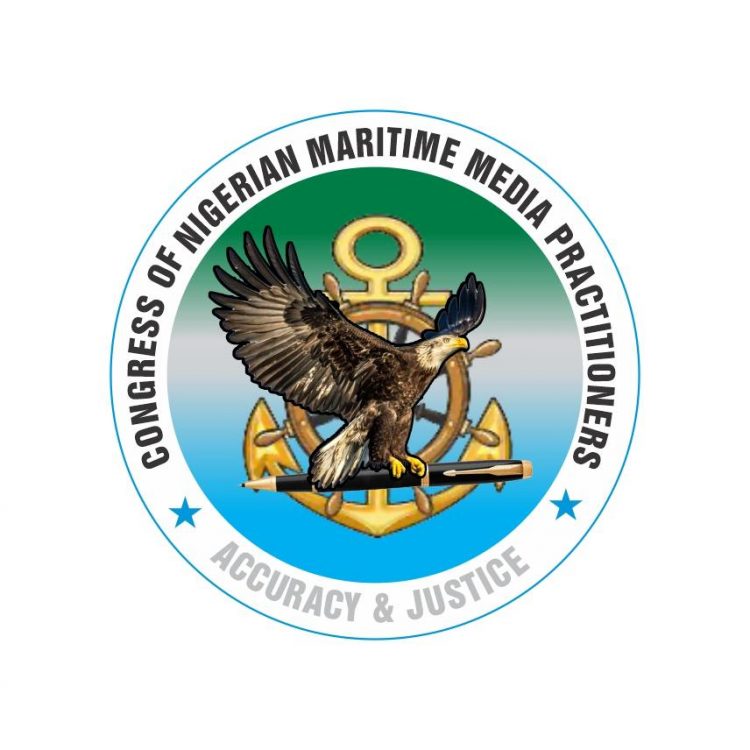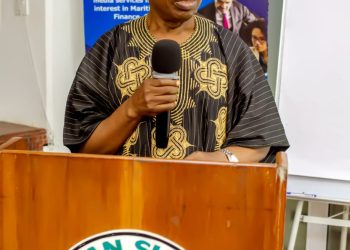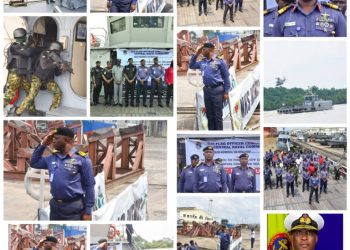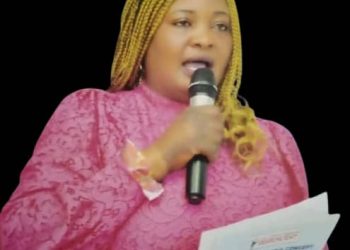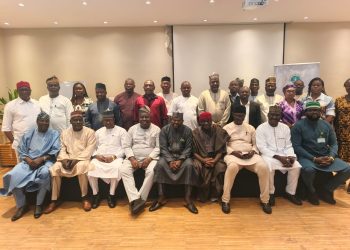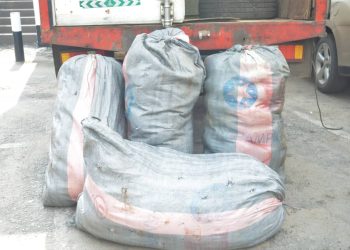TIME FOR NIGERIA TO TAKE ADVANTAGE OF ITS ENORMOUS MARINE RESOURCES LONG OVERDUE —- CONMMEP
/The Prestige Magazine/
The Congress of Nigerian Maritime Media Practitioners – CONMMEP has expressed shock that despite Nigeria’s amazing natural endowments and potentials, the country is still struggling in every sector of the economy most especially, the maritime.
According to the various publications and information that have put the annual worth of trade within the Maritime Sector at around Twenty Four Trillion dollars ($24 trillion) and most countries of the world especially those that have direct access to the seas do take advantage to get a chunk of this amount.
 ADEGBOYEGA OYETOLA, HON. MINISTER OF MARINE AND BLUE ECONOMY
ADEGBOYEGA OYETOLA, HON. MINISTER OF MARINE AND BLUE ECONOMY
It is in the light of this that CONMMEP seeks to unravel the mystery behind Nigeria’s lethargic attempt at fulfilling her potentials as a country with a coastline stretching up to 830km and 200 nautical miles into the ocean. The country has a marine bio-diversity that is one of the best in the world culminating in the West African continental shelf being also one of the richest globally.
The present federal government of Nigeria deemed it necessary to create the long awaited Ministry of Marine and Blue Economy which most operators in the maritime sector have since advocated, but the euphoria over the creation of this much needed Ministry is increasingly dying down as it is generally agreed that the headship of this Ministry has since looked like putting a square peg in a round hole.
Rising from its monthly meeting CONMMEP in a statement signed by its President, Alhaji Tunde Umar- Daniah, noted that Many reasons including lack of leadership have continued to militate against the growth and proper exploitation of the potentials in the sector which are needed to improve the national economy and for the growth of individual businesses.
” Experts and practitioners within the maritime sector have mostly criticised the yearly setting and increase in revenue targets for Nigeria Customs Service by the Federal government as this is arguably termed ‘anti-trade’. This assertion when viewed solely as an issue that affects trade may paint a very bad picture of the government but it could be understood from the different perspectives of imperative action and also expediency. Now the decision to increase the target given to the NCS is strictly a financial matter to be blamed on the Ministry of Finance, but what about matters concerning, professionalism, security at the Ports, accessibility, free movement around and within the Ports and such other matters as the removal of bureaucracy and streamlining of processes to expedite the usually mouthed ease of doing business?
” The World Trade Organisation’s predictability index, a metric that quantifies the level of predictability within a given system or process ranks Nigeria low based on the cargo dwell time from the moment of landing at the Port to the time it takes to get to the warehouse and the reason for this is not far fetched as the various man made hurdles are deliberately and systematically placed to slow all processes down for pecuniary gains.
” A couple of weeks ago, there was fracas at Tin Can Island Port first gate which allegedly claimed a life with many seriously injured. The crux of the matter was the ownership right to the turf around the Port gate area and subsequent collection of tolls. Now, the dramaties personae are the Maritime Workers Union of Nigeria (MWUN) and the Lagos State Trucks and Cargo Operators Committee (LASTCOC), an ad-hoc body that is as intriguing as it is seen as obnoxious. Though as at this moment, the warring factions seem to be embracing peace as they and other stakeholders within the Maritime Sector are meeting to iron out their differences, but one hopes that the relative peace seen around these groups now becomes a lasting one.
” Observers seem to be befuddled by the hellish experience one has to pass through to use the Lagos Ports access roads and ultimately to access the Ports themselves. Queues of up to 4 kilometres almost permanently forms along the Oshodi-Apapa Port corridor and this permanent feature has also brought with it unimaginable amount of trauma both in human and financial costs that road and Ports users experience.
” The processes one had to pass through to clear goods and evacuate them from the Ports are still very hectic and the single window policy of the Nigeria Customs Service has really not been that effective as it is not dedicatedly employed for obvious reasons of ineptitude and corruption. Of course, there is that recurring matter of pilfering as well as general losses incurred at the Ports”, the statement said.
According to CONMMEP there are cries of helplessness from freight forwarders to the economic regulators of the Ports, the Nigerian Shippers’ Council (NSC) to act and save their businesses from the ‘Shylock’ Shipping Companies and Terminal Operators who have continued to exploit them. ” ” ” They claim that these two different businesses cause undue delay in the goods clearing processes so that their cargoes can incur demurrage; and that spaces are not provided for returning of empty boxes. And these anomalies cost them a lot of money.
” There is also the angle of the security operatives who illegally stop trucks carrying legally cleared cargoes to make the owners part with money before releasing of the cargoes.
” The waterways are not also as safe as they should be as the relevant equipment that should be used are either not available or dilapidated or substandard thereby resulting in constant news of damaged seacraft, accidents and deaths.
” As stated above, the Nigeria Customs Service- NCS has been given a target and for this fiscal year, the organization has to generate the sum of N5.07 trillion for the federal government as its own contribution to the revenue base being the third largest revenue generating agency in the country. In consideration of this, one would think that the Minister for Marine and Blue Economy, Adegboyega Oyetola would have been up and doing especially as the Nigerian economy is presently in a near comatose stage and a lot is needed to resuscitate it.
” The many anomalies and incidences that slow down the sector should be curtailed and more pragmatic approach at problem solving should be embraced, but then again, it is a season of impunity and high-handedness. At a time when prudent management of resources should be the watchword, profligacy and misappropriation of resources have been the order of the day, but as well meaning Nigerians, we say that it is not too late in the day to start doing the right thing for as they say in Igbo parlance “whenever one wakes up is his morning”, the statement concluded.



